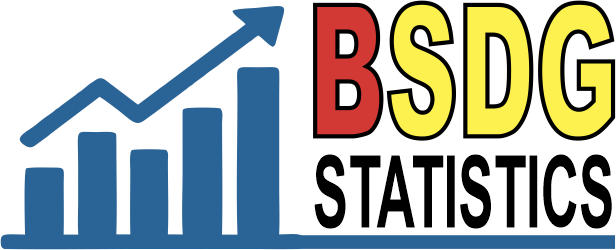REKOMENDASI AREA LOKASI TAPAK SUMUR EKSPLORASI PANAS BUMI MENGGUNAKAN PEMODELAN SISTEM INFORMASI GEOGRAFIS DI DAERAH PROSPEK CISOLOK-CISUKARAME, SUKABUMI, JAWA BARAT
RECCOMENDATION FOR GEOTHERMAL EXPLORATION WELLPAD AREA USING GEOGRAPHIC INFORMATION SYSTEM MODELING IN CISOLOK-CISUKARAME PROSPECT, SUKABUMI, WEST JAVA
Abstract
The use of Geographic Information System (GIS) modelling in developing geothermal resources has been widely carried out, from the initial survey and exploration to exploitation or production stages. This GIS modelling aims to delineate specific locations that are considered to have geothermal resources or are suitable for geothermal field production facilities. This study aims to obtain a map of the recommended wellpad area for the optimal geothermal exploration well drilling location by considering technical and non-technical parameters. This research was conducted in the Cisolok-Cisukarame geothermal prospect area in Sukabumi Regency, West Java Province. The map is produced by integrating eight parameters that will affect the amount of drilling costs: prospect area, slope, reservoir crest depth area, geological structure, water source, access road, settlement area, surface manifestation area, and cultural heritage area. In the early stages, buffer areas and classifications were made for these parameters with a specific range of values based on several considerations. Furthermore, spatial data integration is carried out using vector overlaying boolean operations. The result is a map of the wellpad recommendation area for geothermal exploration wells in the Cisolok-Cisukarame area, with an area of approximately 6.31 km2 (19.62% of the P90 prospect area). Using a 120-meter fishnet produces eight large cluster areas and five small cluster areas, which are suitable for wellpad of standard hole. Meanwhile, the 50-meter fishnet produces the same number of clusters and five other smaller clusters. The results of this study can be used as recommendations for areas to be used as well as footprint locations and planning for further field survey activities such as geotechnical and infrastructure surveys.
Downloads
References
Abuzied, S.M., Kaiser, M.F., Shendi, E.A.H. and Abdel-Fattah, M.I., 2020. Multi-criteria decision support for geothermal resources exploration based on remote sensing, GIS and geophysical techniques along the Gulf of Suez coastal area, Egypt. Geothermics, 88, p.101893.
Alias, M.A., Hashim, S.Z.M. and Samsudin, S., 2008. Multi criteria decision making and its applications: a literature review. Jurnal Teknologi Maklumat, 20(2), pp.129-152.
Anonim, 2021. Laporan Integrasi Data Akuisisi Geosains Daerah Panas Bumi Bittuang, Cisolok-Cisukarame, Nage, Gunung Endut, Sembalun, Gunung Tampomas, Gunung Ciremai, dan Daerah Panas Bumi Marana. Bandung.
Baffoe, P.E. and Sarpong, D., 2016. Selecting suitable sites for wind energy development in Ghana. Ghana Mining Journal, 16(1), pp.8-20.
Badan Informasi Spasial (BIG), 2023. Indonesia Geospatial Portal.
Brown, K.L., 2000; Environmental Safety and Health Issues, in Geothermal Development: WGC2000 Short Courses, p. 100.
Carranza, E.J.M. et al., 2008. Spatial data analysis and integration for regional-scale geothermal potential mapping, West Java, Indonesia, Geothermics, 37(3), pp. 267–299.
Coro, G. and Trumpy, E., 2020. Predicting geographical suitability of geothermal power plants, Journal of Cleaner Production, 267, p. 121874.
Dezayes, C., Famin, V., Tourlière, B., Baltassat, J.M. and Bénard, B., 2022. Potential areas of interest for the development of geothermal energy in La Réunion Island based on GIS analysis. Journal of Volcanology and Geothermal Research, 421, p.107450.
García-Estrada, G.H., López-Hernández, A. and León, J.L.Q., 2008. Selection of new drill sites using a Geographic Information System (GIS) at Los Azufres, Mexico, Geotermia, p. 43.
Gouareh, A., Settou, N., Khalfi, A., Recioui, B., Negrou, B., Rahmouni, S. and Dokkar, B., 2015. GIS-based analysis of hydrogen production from geothermal electricity using CO2 as working fluid in Algeria. International journal of hydrogen energy, 40(44), pp.15244-15253.
Jara-Alvear, J., De Wilde, T., Asimbaya, D., Urquizo, M., Ibarra, D., Graw, V. and Guzmán, P., 2023. Geothermal resource exploration in South America using an innovative GIS-based approach: A case study in Ecuador. Journal of South American Earth Sciences, 122, p.104156.
Jensen, J.R. and Jensen, R.R., 2012. Introductory geographic information systems. Pearson Higher Ed.
Kementerian Energi dan Sumber Daya Mineral, 2007. Keputusan Menteri Energi dan Sumber Daya Mineral Nomor 1937 K/30/MEM/2007 tentang Penetapan Wilayah Kerja Pertambangan Panas Bumi di Daerah Cisolok Cisukarame Kabupaten Sukabumi Provinsi Jawa Barat.
Kementerian Negara Lingkungan Hidup, 1996. Keputusan Menteri Negara Lingkungan Hidup Nomor Kep-48/Menlh/11/1996 tentang Baku Tingkat Kebisingan Menteri Negara Lingkungan Hidup.
Kementerian Pekerjaan Umum dan Perumahan Rakyat, 2015. Peraturan Menteri Pekerjaan Umum dan Perumahan Rakyat Nomor 28/PRT/M/2015 tentang Penetapan Garis Sempadan Sungai dan Garis Sempadan Danau. 28/PRT/M/2015.
Kiavarz, M. and Jelokhani-Niaraki, M., 2017. Geothermal prospectivity mapping using GIS-based Ordered Weighted Averaging approach: A case study in Japan’s Akita and Iwate provinces, Geothermics, 70, pp. 295–304.
Manzella, A., Botteghi, S., Flovenz, O., Gola, G., Hersir, G.P., Limberger, J., Liotta, D., Santilano, A., Trumpy, E. and van Wees, J.D., 2019. Mapping super-critical geothermal resources in Europe. In Proceedings of the European Geothermal Congress 2019 (pp. 1-5).
Mustofa, S.A., Hadi, M.N. and Candra, 2021; Survei Rinci Geologi Daerah Panas Bumi Cisolok-Cisukarame Kabupaten Sukabumi Provinsi Jawa Barat. Bandung.
Noorollahi, Y. et al., 2007a. GIS model for geothermal resource exploration in Akita and Iwate prefectures, northern Japan, Computers & geosciences, 33(8), pp. 1008–1021.
Noorollahi, Y. et al., 2007b. GIS model for geothermal resource exploration in Akita and Iwate prefectures, northern Japan, Computers & Geosciences, 33(8), pp. 1008–1021.
Noorollahi, Y., Itoi, R., Fujii, H. and Tanaka, T., 2008. GIS integration model for geothermal exploration and well siting. Geothermics, 37(2), pp.107-131.
Noorollahi, Y., Itoi, R., Fujii, H. and Tanaka, T., 2008. GIS integration model for geothermal exploration and well siting. Geothermics, 37(2), pp.107-131.
Noorollahi, Y., Ghasempour, R. and Jalilinasrabady, S., 2015. A GIS based integration method for geothermal resources exploration and site selection, Energy Exploration & Exploitation, 33(2), pp. 243–257.
Nugraha, H.S.Permana, L.A. and Sukaesih, 2021. Analisis Citra Satelit Landsat 8 dan DEMNAS Untuk Identifikasi Prospek Panas Bumi di Kabupaten Aceh Tengah, Provinsi Aceh, Buletin Sumber Daya Geologi, 16(3), pp. 166–184.
Omwenga, B., Katana, C., Rutto, E. and Musyoka, C., 2019. Integration of Geological Modelling Approach and GIS in Exploration and Well Targeting in the Olkaria Geothermal Area.
Omwenga, B.M., 2020. Geothermal Well Site Suitability Selection Using Geographic Information Systems (GIS) and Remote Sensing: Case Study of the Eburru Geothermal Field. In 45th Workshop on Geothermal Reservoir Engineering (Vol. 1, pp. 1-6).
Ozsahin, D.U., Gökcekus, H., Uzun, B. and LaMoreaux, J.W. eds., 2021. Application of multi-criteria decision analysis in environmental and civil engineering (pp. 37-41). Cham, Switzerland: Springer.
Pusat Pengelolaan dan Penyebarluasan Informasi Geospasial Badan Informasi Geospasial (BIG), 2023.Ina-Geoportal.
Sadeghi, B. and Khalajmasoumi, M., 2015. A futuristic review for evaluation of geothermal potentials using fuzzy logic and binary index overlay in GIS environment. Renewable and Sustainable Energy Reviews, 43, pp.818-831.
Yalcin, M. and Gul, F.K., 2017. A GIS-based multi criteria decision analysis approach for exploring geothermal resources: Akarcay basin (Afyonkarahisar), Geothermics, 67, pp. 18–28.
Yousefi, H. and Ehara, S., 2008. GIS Integration Method for Geothermal Power Plant Siteing in Sabalan Area, NW Iran, in Proceedings, Thirty-Third Workshop on Geothermal Reservoir Engineering Stanford University, pp. 28–30.
Yousefi-Sahzabi, A., Sasaki, K., Yousefi, H., Pirasteh, S. and Sugai, Y., 2011. GIS aided prediction of CO2 emission dispersion from geothermal electricity production. Journal of Cleaner Production, 19(17-18), pp.1982-1993.
Zaher, M.A., Saibi, H., Mansour, K., Khalil, A. and Soliman, M., 2018. Geothermal exploration using airborne gravity and magnetic data at Siwa Oasis, Western Desert, Egypt. Renewable and Sustainable Energy Reviews, 82, pp.3824-3832.
Copyright (c) 2024 Buletin Sumber Daya Geologi

This work is licensed under a Creative Commons Attribution-NonCommercial-ShareAlike 4.0 International License.
Authors whose manuscripts are published agree to the following terms:
The publication rights of all journal manuscript materials published on the Buletin Sumber Daya Geologi website are held by the editorial board with the knowledge of the author (moral rights remain with the manuscript’s author).
The formal legal provisions for access to digital articles in this electronic journal are subject to the terms of the Creative Commons Attribution-ShareAlike (CC BY-SA) license. This means that Buletin Sumber Daya Geologi has the right to store, convert media/formats, manage in the form of a database, maintain, and publish the article without requesting permission from the author, as long as the author’s name is cited as the copyright holder.
Manuscripts published in both print and electronic formats are open access for educational, research, investigative, and library purposes. Beyond these purposes, the editorial board is not responsible for any violations of copyright law.















